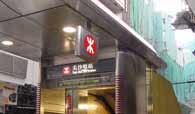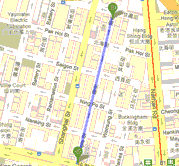Temple Street
Night Market
Night Market
Want to see a cross-section of Hong Kong society in one short street? Then visit the last remaining Night Market in Hong Kong. Once a popular entertainment known as "Poor Man's Night Club" the Temple Street Night Market is the last remaining example in Hong Kong. Recent visitors recommend arriving about one hour before dusk for the best lighting and then staying for dinner as the atmospheric comes alive after 8PM. Help us protect this unique part of Hong Kong culture by sampling the wears in the market stalls, Chinese Opera show or by visiting a fortune teller.

Restaurants and Eating
As a street market the Shopping should be seen as the mainstay of Temple Street Night Market, but as many people come here to dine as to buy. It is one of the few places in Hong Kong where the traditional street-food restaurants or Dai Pai Dongs are still to be found, mixed among the market stalls, spilling out of the shop fronts, or congregating in the Woosung Street Temporary Hawker Food Bazaar. Enjoy snacks or a full dinner of fresh fish, spicy crab, claypot rice and other unique dishes. Learn more about the cultural significance behind Hong Kong's food traditions, explore vegetarian dining options, discover Michelin-starred fine dining for special occasions, or experience exclusive private food tours with expert cultural guides.
Fortune Tellers at the Market
In Hong Kong the telling of fortunes or divination has always been associated with temples, and so the temple street night market being so closely associated with the temple it isn't suprising that it has become a regular place for people to seek knowledge of their future. Whether you are a believer in fortune telling or simply consider it an interesting part of the local culture, you won't find better examples than the stalls which line their own particular street at the side of the market.
Street food is a tradition in Hong Kong and is found in every residential district of the city.
Hotels and Accommodation
Want to stay in a central part of Hong kong that gives you easy access to Nathan Road and the Temple Street night market? Check out some of these hotel option.
Luxury Experiences
Elevate your Hong Kong adventure with exclusive cultural experiences designed for discerning travelers. From private food tours with expert cultural guides to Michelin-starred fine dining and world-class luxury accommodations, discover Hong Kong's sophisticated side while experiencing authentic Temple Street culture.



